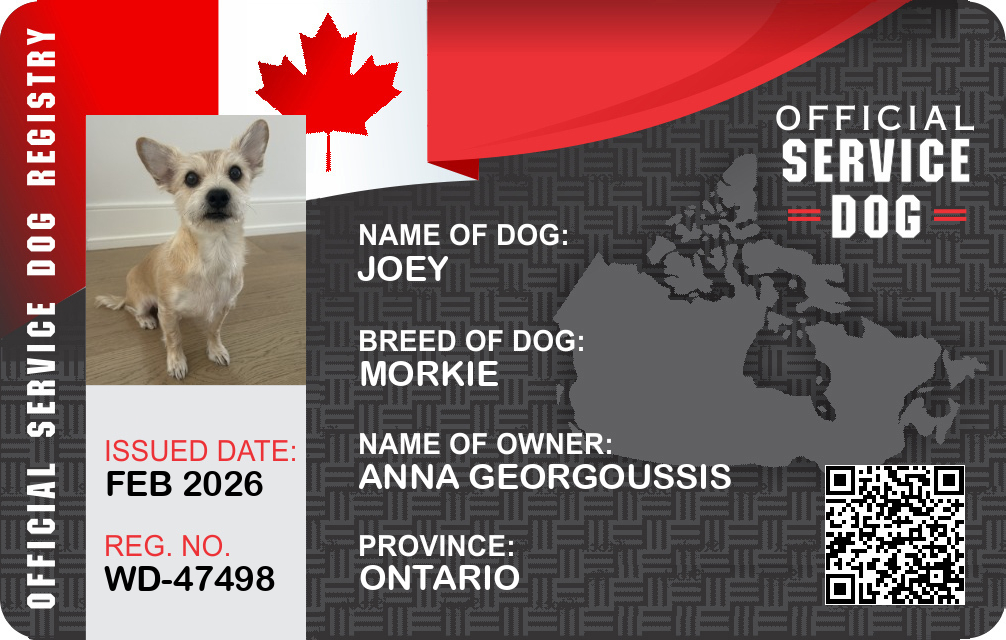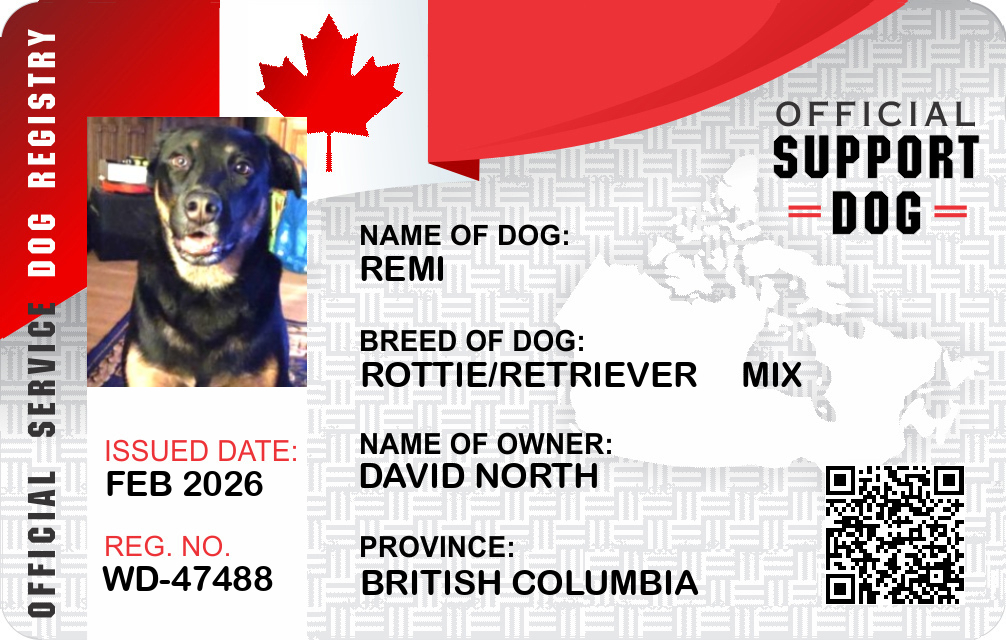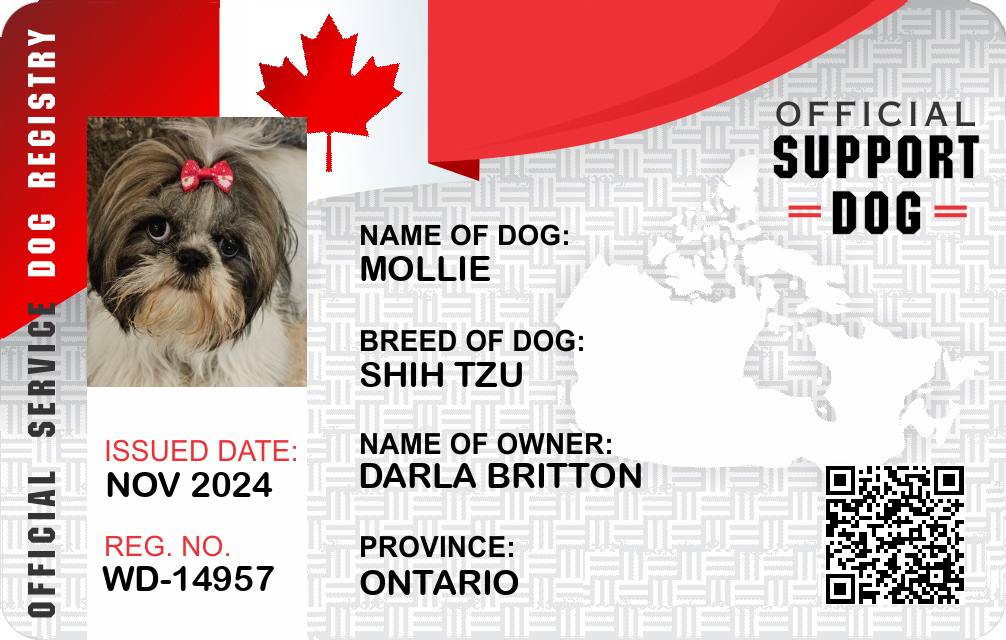Delaware Emotional Support Animal Laws
Get Your Documents
Example State Cards


Overview of ESA and Legal Definitions in Delaware
What is an Emotional Support Animal?
An Emotional Support Animal (ESA) provides comfort and emotional relief to individuals with psychological or emotional illnesses. Unlike service animals, ESA are not required to perform specific tasks related to the person’s disability. Instead, the mere presence of an ESA alleviates symptoms associated with emotional or mental health conditions, such as anxiety or depression. In Delaware, understanding the Delaware Emotional Support Animal Laws is important because, as in other states, ESA can be of any species or breed, and they do not require specialized training.
How ESA Differ from Service Animals
Service animals, as defined by the Americans with Disabilities Act (ADA), are dogs individually trained to perform tasks directly related to a person’s disability. This includes guiding the blind, alerting the deaf, pulling a wheelchair, and more. ESA, on the other hand, do not have specialized training to perform specific tasks. This fundamental difference results in distinct legal protections and allowances. While service animals have broad public access under federal law, ESA primarily enjoy rights related to housing and, to a limited extent, air travel.
Key Federal Laws Affecting ESA (e.g., FHA, ACAA)
The Fair Housing Act (FHA) is a crucial federal law affecting ESA. It mandates that housing providers make reasonable accommodations for individuals with disabilities, including those requiring ESA, even in properties with “no pet” policies. The Air Carrier Access Act (ACAA) previously allowed ESA to fly with their owners in the cabin; however, recent updates permit airlines to treat ESA as pets. As a result, ESA no longer have guaranteed access to fly free of charge, unlike service animals.
State-Specific ESA Laws in Delaware
Housing Rights and Responsibilities
Under the FHA, individuals in Delaware have the right to keep an ESA in housing units that otherwise prohibit pets. This applies to both private and public housing. Landlords must make reasonable accommodations unless it imposes an undue financial or administrative burden or fundamentally alters the nature of the housing operations. Tenants must provide appropriate documentation from a licensed mental health professional to validate their need for an ESA. Importantly, ESA are not considered pets, so typical pet fees or deposits should not be imposed.
Public Access and Accommodation
In Delaware, as per federal guidelines, ESA are not granted the same public access rights as service animals. This means that ESA are not allowed in public places that do not allow pets, such as restaurants, stores, and other businesses, unless they have pet-friendly policies. Businesses in Delaware have no legal obligation to admit ESA, and they can choose to adhere strictly to pet and service animal policies without making exceptions for ESA.
Transportation and Travel Rules
For ground transportation within Delaware, there are no specific state laws granting ESA access to public or private transportation services. They are typically subject to the same rules as pets. Concerning air travel, Delaware adheres to the updated ACAA regulations, allowing airlines to treat ESA as regular pets. While many Delaware airports accommodate service animals, ESA owners should contact airlines in advance to understand specific policies and potential fees for flying with an ESA.
Employment and Workplace Considerations
The ADA does not recognize ESA as an accommodation like it does service animals. Thus, in Delaware, employers are not obligated to allow ESA in the workplace. However, employees can request such accommodations, and employers may consider them under their reasonable accommodation policies. If the presence of an ESA is deemed a reasonable accommodation without undue hardship, an employer might allow it. Clear, open communication between employer and employee facilitates this process.
Documentation, Requirements, and Processes in Delaware
ESA Letters and Who Can Issue Them
In Delaware, an ESA letter, also known as a prescription or recommendation, is crucial for those seeking to keep an ESA in housing situations where pets are not allowed. This document must be issued by a licensed mental health professional (LMHP), such as a psychologist, psychiatrist, or clinical social worker. It must state that the ESA is an essential part of the treatment plan for the specific individual. The letter should be on the LMHP’s letterhead and include their license number and contact information.
Landlord, Business, and Provider Verification Rules
Landlords in Delaware have the right to request verification of an ESA through an ESA letter. However, they cannot demand detailed medical records or ask intrusive questions about the tenant’s disability. Similarly, businesses may request ESA documentation if they choose to allow ESA despite not being required by law. Providers evaluating ESA letters should confirm their authenticity and ensure that the issuer is a licensed mental health professional.
Rights, Limitations, and Legal Risks
Rights ESA Owners Have in Delaware
In Delaware, ESA owners primarily have rights under housing laws, which require landlords to allow ESA even when a property has a no-pet policy. This is meant to provide individuals with emotional support a fair chance at obtaining adequate housing. However, these rights are contingent upon the proper documentation being provided.
Limits on ESA Protections and Common Restrictions
ESA in Delaware do not have public access rights, meaning they cannot automatically enter places that do not permit pets. Airlines can impose specific guidelines or fees, as ESA are treated as regular pets under the ACAA. Additionally, employment rights for ESA are limited and subject to employer discretion regarding reasonable accommodation.
Penalties for Fraud or Misrepresentation
Misrepresenting a pet as an ESA or a service animal in Delaware can lead to legal consequences. Fraudulent claims to obtain ESA accommodations undermine the rights of individuals with legitimate needs. While Delaware’s laws do not specifically outline penalties, federal laws against fraudulent representation could entail fines or other repercussions.
Practical Guidance for ESA Owners in Delaware
How to Qualify for an ESA Legitimately
- Seek an evaluation from a licensed mental health professional who can determine the necessity of an ESA for your condition.
- Obtain and maintain an up-to-date ESA letter from your LMHP.
How to Talk to Landlords, Airlines, and Employers
- Landlords: Present your ESA letter promptly when requesting housing accommodations. Be prepared to discuss how the ESA alleviates symptoms of your condition.
- Airlines: Contact the airline well in advance of travel to confirm their ESA policies, required documentation, and any associated fees.
- Employers: If seeking to bring an ESA to the workplace, initiate a conversation about reasonable accommodations and provide relevant documentation from your LMHP.
Summary of ESA Laws in Delaware
- Rights: ESA owners in Delaware primarily receive legal protections concerning housing under the FHA.
- Limitations: ESA do not have public access rights comparable to service animals and are treated as pets by airlines.
- Documentation: An ESA letter from a licensed mental health professional is required.
- Legal Risks: Misrepresenting an ESA can lead to penalties under broader fraud laws.
- Practical Tips:
- Obtain proper documentation from a healthcare provider.
- Communicate clearly with landlords and service providers about your ESA.
Get Your Documents
Example State Cards













